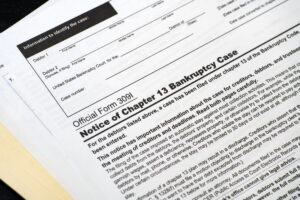
We Are Bankruptcy Attorneys In Aurora, Colorado
Looking for an Aurora, Colorado bankruptcy lawyer? Your search is over! We can help.
We have helped hundreds of Coloradans file Chapter 7 and Chapter 13 bankruptcy. Our goal is to get you through the bankruptcy process, from beginning to end, in as stress-free way as possible. We’ll be with you on every step of your journey from the time you hire us until the bankruptcy court closes your case. If you have a question, we’ll answer it
Filing Chapter 7 Bankruptcy In Aurora, Colorado
Most people file Chapter 7 bankruptcy.
Chapter 7 bankruptcy is a type of bankruptcy proceeding in which an individual or business can have certain debts discharged (eliminated). It is often referred to as a “liquidation” bankruptcy because the bankruptcy trustee may sell off certain assets in order to pay off creditors. However, it is important to note that not all assets (cash, personal belongings, retirement accounts, real estate) must be sold in a Chapter 7 bankruptcy, as certain assets are protected, at least up to a certain value amount.
One of the primary purposes of Chapter 7 bankruptcy is to provide relief to individuals or businesses who are struggling with overwhelming debt. By filing for Chapter 7 bankruptcy, an individual or business can stop creditor harassment, wage garnishment, foreclosure, and other collection efforts while they work to get their financial affairs in order.
One of the first things that an individual or business should do when considering Chapter 7 bankruptcy is to consult with a bankruptcy attorney. An attorney can help to assess the individual’s or business’s financial situation and advise them on whether Chapter 7 bankruptcy is the best option. The attorney can also help to guide the individual or business through the bankruptcy process and ensure that their rights are protected.
Once an individual or business has decided to move forward with Chapter 7 bankruptcy, the next step is to gather all of the necessary financial documentation. This may include tax returns, pay stubs, bank statements, and other financial records. This information will be used to determine the individual’s or business’s eligibility for Chapter 7 bankruptcy and to help the bankruptcy trustee understand the nature of the individual’s or business’s debts and assets. We can help you collect some of that information.
After the necessary financial documentation has been gathered, your attorney will prepare a petition for the bankruptcy court. This petition will include information about the individual’s or business’s debts, assets, income, and expenses. It is important to be as thorough and accurate as possible when completing the petition, as any errors or omissions could potentially delay the bankruptcy process or even result in the bankruptcy case being dismissed.
Once the petition has been filed, the individual or business will need to attend a “meeting of creditors.” This meeting is typically held about a month after the petition is filed and is attended by the individual or business, the bankruptcy trustee, and any creditors who choose to attend. Creditors rarely attend. During the meeting, the individual or business will be asked questions about their financial situation and the bankruptcy process. Creditors will also have an opportunity to ask questions and object to the discharge of any debts.
After the meeting of creditors, the bankruptcy trustee will review the individual’s or business’s assets to determine which, if any, can be sold to pay off creditors. Exempt assets, such as a primary residence or certain personal property, cannot be sold by the bankruptcy trustee. Any non-exempt assets will be sold, and the proceeds will be used to pay off creditors according to the priority set forth in the bankruptcy code.
If the individual or business does not have any non-exempt assets, or if the sale of any non-exempt assets does not generate sufficient funds to pay off all of the debts, the remaining debts will be discharged. This means that the individual or business will no longer be responsible for paying those debts.
It is important to note that not all debts are dischargeable in Chapter 7 bankruptcy. Some examples of debts that cannot be discharged include student loans, most taxes, and child support payments. Additionally, if an individual or business has engaged in fraud or other wrongdoing, their debts may not be dischargeable.
Once the bankruptcy process is complete, the individual or business will receive a discharge of their debts. This discharge will typically be entered within a few months of the meeting of creditors. At this point, the individual or business will no longer be responsible for paying the discharged debts, and creditors will no longer be able to take any collection action.
Schedule A Free Consultation With An Experienced Aurora, Colorado Bankruptcy Attorney
We offer free consultations with an experienced Aurora, Colorado bankruptcy attorney for people who are considering either Chapter 7 or Chapter 13 bankruptcy.
The easiest way to schedule an appointment is by going to our scheduling page.
Check out our client reviews on Google, Facebook, and Avvo!
How Student Loans Can Help You Avoid The Means Test
Can Bankruptcy Eliminate A Debt For Overpayment Of A Public Benefit?
When Is A Property Settlement In Divorce A Non-Dischargeable Support Obligation In Bankruptcy?
5 Reasons You Should Not File Bankruptcy
6 Ways Bankruptcy Can Help You Sleep Better At Night
Should I Load Up On Debt Before I File Bankruptcy?
How A Secured Credit Card Can Help Rebuild Your Credit After You File Bankruptcy


